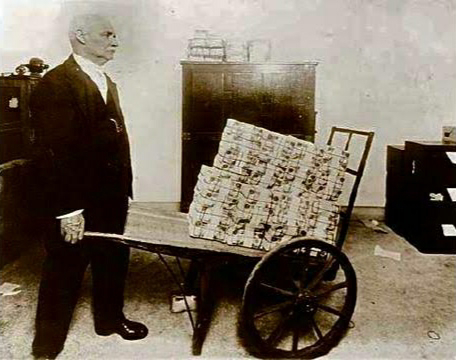Marx's Life & Legacy
Karl Marx: The Life, Ideas, and Legacy of a Revolutionary Thinker
Karl Marx, a towering figure in the history of political philosophy, economics, and sociology, was a German philosopher, economist, and revolutionary socialist. He is best known for his influential ideas that laid the groundwork for communism and his co-authorship of "The Communist Manifesto" (1848) and "Das Kapital" (Capital: A Critique of Political Economy). Marx's life and work have had a profound impact on the course of history, inspiring movements, shaping political ideologies, and sparking debates that continue to this day. In this article, we will delve into the key aspects of Karl Marx's life, including his childhood, career, achievements, and death.
**Early Life and Childhood:**
Karl Marx was born on May 5, 1818, in Trier, a city in the Kingdom of Prussia, which is now part of Germany. He was the third of nine children born to Heinrich Marx and Henrietta Pressburg. Marx's father was a successful lawyer and a Jewish descendant who converted to Lutheranism, facing social and legal discrimination due to his Jewish heritage.
During his childhood, Marx exhibited exceptional intellectual abilities, which led him to excel in his studies. He attended the Friedrich-Wilhelm Gymnasium in Trier, where he became well-versed in literature, history, and the classics. At a young age, he developed a keen interest in philosophy and, influenced by his father's political beliefs, showed early signs of revolutionary thinking.
**Academic Journey and Early Career:**
In 1835, Marx enrolled at the University of Bonn to study law. However, he found himself more drawn to social and philosophical studies, participating in debates and joining various intellectual circles. After a year, he transferred to the University of Berlin, where he studied under the renowned philosopher Georg Wilhelm Friedrich Hegel.
Hegel's philosophy greatly impacted Marx's intellectual development. Marx embraced Hegelian idealism while simultaneously becoming critical of its conservative applications. He also joined a group known as the "Young Hegelians," who aimed to reinterpret Hegelian ideas in a more radical and materialist manner.
After completing his studies in 1841, Marx embarked on a career in journalism and became an editor for the Rheinische Zeitung (Rhineland News), a liberal newspaper based in Cologne. Through his work as a journalist, Marx began to delve deeper into social and economic issues, witnessing firsthand the oppression and suffering of the working class.
**The Revolutionary Years:**
In 1843, Marx moved to Paris, where he became more deeply involved in revolutionary activities and met Friedrich Engels, a fellow German radical thinker. The two formed a lifelong friendship and intellectual partnership that would prove instrumental in the development of Marxist theory.
In 1845, Marx was expelled from France and settled in Brussels, Belgium. During his time there, he continued to refine his ideas and research, culminating in the publication of "The German Ideology" and "Theses on Feuerbach." These works laid the foundation for historical materialism and the materialist conception of history, key elements of Marx's theoretical framework.
**The Communist Manifesto and Impact:**
In 1848, Marx and Engels published "The Communist Manifesto," a seminal work that outlined their vision of a classless society based on communism. The manifesto became a clarion call for the working class and inspired revolutionary movements across Europe. It provided a compelling critique of capitalist society, calling for the overthrow of the bourgeoisie and the establishment of a proletarian-led society.
**Exile and "Das Kapital":**
Due to his revolutionary activities, Marx faced increasing political pressure, leading him to move to London in 1849, where he lived for the rest of his life in exile. Despite financial hardships, he dedicated himself to writing and research.
His most significant and influential work, "Das Kapital," was published in three volumes (1867, 1885, and 1894) posthumously. In this comprehensive work, Marx delved into the critique of political economy, exploring the dynamics of capitalism, labor theory of value, and surplus value. "Das Kapital" is considered one of the foundational texts of economic thought and an essential work in the history of political economy.
**Personal Life and Challenges:**
Throughout his life, Marx faced considerable personal and financial challenges. He struggled to provide for his family, and their circumstances were often difficult. Marx's wife, Jenny von Westphalen, played a vital role in supporting him and managing their household, allowing him to focus on his intellectual pursuits.
Marx also suffered from poor health, enduring various ailments throughout his life. His physical condition was further exacerbated by the stress and strain of his revolutionary activities and intellectual endeavors.
**Death and Legacy:**
Karl Marx passed away on March 14, 1883, at the age of 64, in London. His theories and ideas continued to gain traction and influence even after his death. Engels played a significant role in preserving and disseminating Marx's work, ensuring that his ideas reached a broader audience.
Marx's legacy is undeniable. His contributions to philosophy, economics, and sociology have shaped political movements and ideologies across the world. While some criticize his ideas as utopian or impractical, others view him as a visionary thinker who highlighted the injustices of capitalism and emphasized the need for a more equitable society.
**Conclusion:**
Karl Marx's life and work have left an indelible mark on the course of history. His ideas have ignited revolutions, challenged established power structures, and inspired generations of thinkers, activists, and leaders. Regardless of one's position on Marx's theories, it is undeniable that he remains a pivotal figure whose impact is still felt in the realms of politics, economics, and social thought today.




Comments
Post a Comment